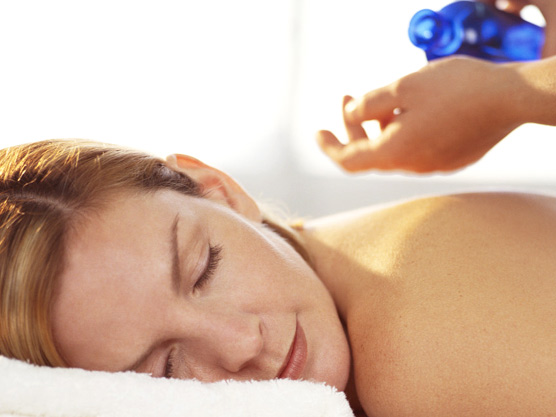
Whether they are White, Black, Hispanic, young, middle-aged, or senior citizens, people are getting massage more than they did just a few years ago. According to the American Massage Therapy Association (AMTA), 36 percent of Americans in 2008 said they got a massage for stress and/or relaxation
in the last five years; compared to 22 percent in 2007.Studies also showed that twenty-seven percent of Hispanics reported getting a massage in the past five years — 25 percent of the total population say they had a massage in the past five years. Twenty-eight percent of Hispanics say they plan to get a massage this year.
The number one reason people say they got their last massage is relaxation/stress reduction.
“It’s a natural high that relaxes people,” says David Estep of Massage Envy in Alameda. When asked what people should expect when they get their first massage ever, he says, “They are going to feel euphoric. There are endorphins that are released into their body - endorphins make you feel better instantly,” he adds. “Massage relaxes you like a natural sedative, but it’s also stimulating by increasing blood flow and circulation.”
A number of research studies indicate that therapeutic massage can reduce anxiety, depression, pain, high blood pressure and headaches.
“It can boost both your immune system and your mood, says Gail Ironson, professor of psychology and psychiatry at the University of Miami, who has conducted several massage-therapy studies.
"Depression and stress do accelerate disease," Ironson said. "Because massage therapy reduces depression and stress, we expect it could also have a protective benefit on slowing disease progression."
Ironson and her university colleagues have conducted several small-scale human studies on the effects of massage on biological measures of mood. The studies looked at levels of the stress hormone cortisol in participants before and right after massage -- finding that the therapy lowered cortisol levels by 47%. Massage also increased serotonin by 36% to 60%, and dopamine by 26% to 59%. Serotonin and dopamine are neurotransmitters that promote improved mood.
The clear and immediate results of massage therapy are usually surprising for people who have not had a massage. One of David’s Hispanic patients at Massage Envy, Belia, had been in a car accident when she was younger but she never when to the doctor for 15 or 20 year. According to David, Belia was taking pain medication and seeing physical therapists but neither helped her during those years. David reports that “when Belia came out of the room after her first massage, she literally broke out in tears because she never felt as good as she did after receiving the massage.”
David says that Belia no longer takes the drugs or needs to pay for them, but can still afford to get a massage regularly. Like any other service, massage is becoming more affordable as it becomes more commonly used.
